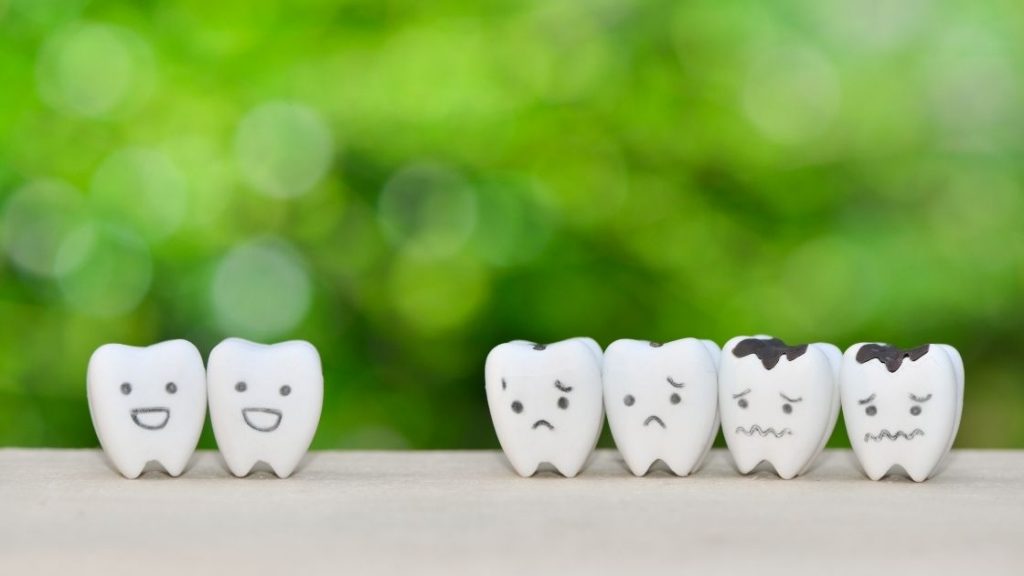How to Improve Your Dental Health
Our body is just like a car; it needs regular maintenance to keep it working properly. The same thing goes with our dental or oral health. We need to take really good care of our mouth and teeth so we can prevent most dental diseases.

Did you know that tooth decay remains to be the leading chronic childhood illness? Blame it to neglecting to brush their teeth and of course to eating too many sweets. The National Institute of Dental and Craniofacial Research revealed that 42% of kids aged 2 to 11 have dental caries and that 23% of them are left untreated. But it’s not just the children because 92% of adults aged 20 to 64 are also suffering from this problem. Therefore clearly we are not doing the best we can when it comes to taking care of our teeth.
We’ve all been taught since we were little kids that we should brush our teeth after every meal or at least twice a day. But is it enough? While that remains to be the most basic oral care that we all should be doing, there are also other good oral care that we should practice. Otherwise your only option to have a really good smile might be to wear crowns, veneers, or implants.
Here are some of the best ways to help improve your dental health:
1. Try an electric toothbrush.
While there’s nothing completely wrong with using a regular toothbrush, but studies have shown that an electric toothbrush works better in cleaning the teeth, thanks to its rotating and oscillating movements that is difficult to achieve using an ordinary brush.
When choosing an electric brush, pick one that is comfortable to hold and and has a rotating and oscillating head.
2. Don’t rinse after brushing your teeth.
It is a common practice among us to rinse with water after brushing our teeth with toothpaste. In reality it is more effective to forego of the rinsing part. The reason behind this is because the toothpaste you use has fluoride and when you rinse your mouth afterwards, you are removing much of the fluoride added to your teeth. Understandably this is not an easy thing to get used to because of the taste of the paste, but eventually you’ll get used to it.
3. Use a mouthwash.
Especially before going to bed, try rinsing with a mouthwash to help fight off the bacteria build up that will occur while you are asleep. While most over the counter mouthwashes just cosmetically cover bad breath, there are products that can help fight gum diseases like gingivitis. Also, look for a mouthwash that has added fluoride to help keep your teeth enamel strong.
4. Chew on gum.
A dry mouth is a playground for bacteria which is the major cause of bad breath for many people. So it is a good idea to keep your saliva flowing and one of the best ways to do this is by chewing on gum. The chewing action stimulates the salivary glands to produce more saliva, keeping your mouth wet. When choosing a gum, pick one that is sugar-free and with mint to help improve your breath.
5. Scrape your tongue.
Our tongue can collect debris from the food we eat and which bacteria will thrive on. Aside from brushing your tongue with toothpaste, it is also a good practice to use a tongue scraper. There are some toothbrushes that have a scraper built-in but you can also buy a stand-alone product.
6. Eat the right food.
There are certain types of food that are known to contribute to a good dental or oral health. Eat some cheese. Studies show that it helps lower the acid levels in the mouth which in turn neutralizes the plaque acid. Cranberries are also good because these help in keeping plaque from sticking to the teeth. Lastly, try some raisins as these help in fighting cavity-causing bacteria.
7. Be aware of teeth grinding.
Some signs of teeth grinding are torn cheek tissue, worn enamel, and tooth sensitivity. Most people who are doing this are not even aware they are grinding their teeth. It’s almost an involuntary thing yet its effect to dental health is great. Consult your dentist who may recommend that you wear certain types of mouth guards when you go to sleep.
Your dental health is in your hands!
Taking care of your teeth and mouth is entirely your responsibility. Now that you are more aware of some of the important steps that you should take to improve your health, take the first step by visiting your dentist. I bet it’s about time you do it anyway.
